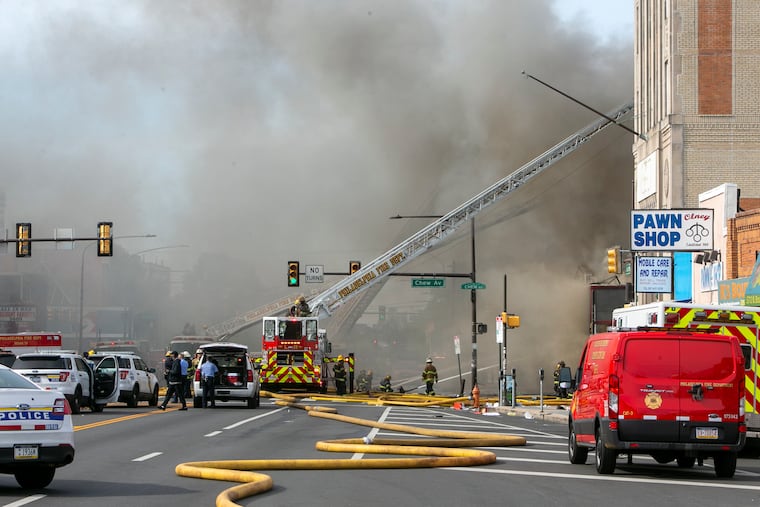Gov. Tom Wolf is asking the feds to offer disaster loans to arson victims during Philly’s George Floyd protests
Wolf’s request would cover arsons during a 10-day period beginning May 30, the first day the nationwide protest movement reached Philadelphia.

Philadelphians whose properties were damaged by arson during the recent civil unrest may be able to obtain low-interest loans from the federal government if the U.S. Small Business Administration approves a request from Gov. Tom Wolf to issue a disaster declaration for the protests following the police killing of George Floyd.
Wolf’s request would cover arsons during a 10-day period beginning May 30, the day the nationwide protest movement reached Philadelphia. On that day, a peaceful march on the Benjamin Franklin Parkway gave way to a night of looting along Chestnut and Walnut Streets in Center City. The next day, chaos spread to neighborhoods across the city, including the 52nd Street corridor, where businesses along the so-called Main Street of West Philadelphia were damaged.
Mayor Jim Kenney “greatly appreciates” Wolf’s request, said spokesperson Lauren Cox. But Cox said the Kenney administration advocated for a disaster declaration “for all businesses affected by the unrest, not just those which were affected specifically by arson fires.”
“Limiting eligibility to just those who suffered from arson would severely curtail the number of entities eligible,” Cox said Friday.
More than 30 fires between May 30 and June 8 are being investigated as arsons, Cox said. The Philadelphia Fire Department responded to at least 95 fires between those dates.
» READ MORE: George Floyd protests quickly overwhelmed Philadelphia police
The Fire Department “cannot definitively say how many were directly connected to the unrest,” Cox said.
Wolf said the damage from the arsons totaled in the millions of dollars.
City officials do not have a total monetary estimate for the damage caused by the unrest, Cox said.
Wolf, in a letter sent to the SBA on Thursday, said many buildings in Philadelphia “sustained significant damages caused by numerous arson fires” during the civil unrest. He said the damage met the minimum SBA requirement of at least 25 homes or businesses with uninsured losses totaling 40% or more of their market value.
The SBA offers low-cost loans to property owners affected by catastrophes that meet certain benchmarks, usually following natural disasters such as hurricanes or floods. For those events, governors typically also request assistance from the Federal Emergency Management Agency, which can reimburse state and local governments for infrastructure repair and provide payments to people impacted by the disaster through its Individual Assistance program. Wolf’s request, though, applies only to the SBA loans for property owners in Philadelphia.
Other governors also have asked the SBA to provide loans for arson damage sustained during the protests. The agency announced this week that businesses in eight counties, including the one that contains Minneapolis, could apply for SBA loans.
Minnesota Gov. Tim Walz had also asked for a major-disaster declaration from the Federal Emergency Management Agency, which would have allowed local governments to receive reimbursement for cleanup and rebuilding in the wake of the unrest. FEMA denied the request, but Walz is appealing.
The SBA also is accepting loan applications from business owners who suffered losses due to civil unrest in several counties in California. Similar assistance has also been approved for Cook County, Ill., which includes Chicago, and surrounding counties in Illinois and Indiana.